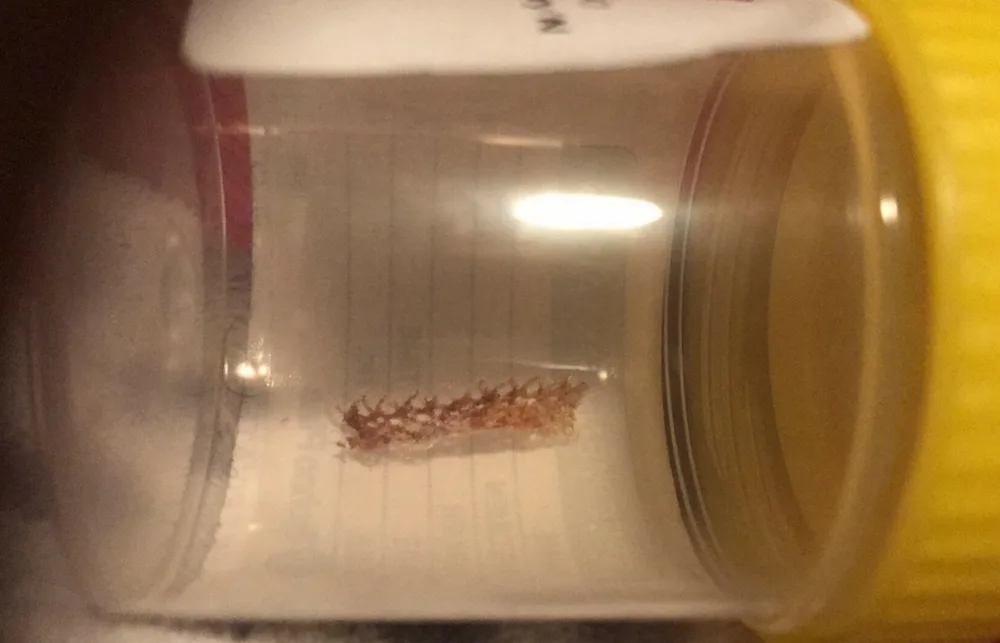It has been described as the greatest medical scandal in Australian history and worse than the Thalidomide disaster. Hundreds of women across Australia have suffered horrific side effects from transvaginal mesh implants, a simple medical device used to treat prolapse or incontinence. Victorian mother-of-two Janine Lacey, 45, is one of those women and shares her story.
My first baby was 10 pound two. I had quite a complicated birth and had stress urinary incontinence after that. It wasn’t anything major, but in 2012 I decided that I needed to claim that part of my life back. I was previously really active, but I struggled even going to the gym.
I investigated having some kind of ‘sling’ put in to support that. I was so excited, and I was only 39 when I had that put in and I still had the rest of my life to look forward to. I worked at a private hospital and thought I understood informed financial consent.
My gynaecologist and I talked about complications, and I was told rarely is there a complication—it was very uncommon. At my very last appointment, just before the surgery, I asked, “How long does the mesh last? Does it need to be replaced?”
The doctor looked at me and said, “Oh, studies have been, we’re not really sure but it does do the job.”

It was meant to be a one night stay in hospital. But post-op I had so much go wrong. I never saw my surgeon, I only saw the registrar who had assisted him in the surgery. Every time I stood up, I vomited. I could not tilt my pelvis— the pain was excruciating. I couldn’t urinate at all and was unable to have a bowel movement. I ended up staying three nights in hospital and got sent home with a catheter.
On the day I left hospital I had three bowel movements in the car – it was the most humiliating thing I’ve ever experienced, ever. Once home, I had to lie down from about midday because I had this sharp, stinging pain in my vagina. I just thought it was post-op pain. My gynaecologist also thought I was still healing after the mesh insertion.
As the months went by, I’d get home from work every day and would have to lie on my bed and rest. I would push myself to make dinner but then my husband would have to do all of the cleaning up, all of the running around with the kids because I was in so much pain. It was this sharp, barbed wire pain that wouldn’t go away.
It got to the point that in the afternoons I couldn’t walk for long periods and would dream of just lying down on my bed, to the point where I would almost be crying.
I had this pain for three years and multiple infections. When I passed urine it started to feel like razorblades. Intercourse was impossible. It was excruciating. My relationship with my husband was breaking down really badly.
RELATED: One Simple Procedure Left This Woman In Agony For Six Years

Three years in, I ended up getting a second opinion and organised to have a cystoscopy. The mesh had eroded transversely through my urethra.
I was referred on to a professor, a urogynecologist, who was hesitant to touch me because if he removed the mesh, my symptoms would be more profound. My stress urinary incontinence would come back and I would probably have other problems.
I remember feeling the worst I’ve ever felt. My GP helped me organise a mental health plan and I went to see a psychologist. The psychologist was amazing, she even got teary with me, she also couldn’t believe what had happened.
My urogynaecologist and I decided the mesh absolutely needed to come out, and my surgeon had found a way to partially remove the mesh from my urethra that hadn’t really been tried before.
“The psychologist…even got teary with me, she also couldn’t believe what had happened.”
We chose the partial removal and it worked, and I was pain-free from the minute I woke up—it was insane. The post-op pain was actually less than my pain that I’d had for years.
As of two months ago, I’m getting a different type of sharp, barbed wire pain again when I sit. I also have this pain, called pudendal neuralgia. It’s this excruciating pain you get up your rectum for no reason. I’ve had to almost call an ambulance on two occasions because I can’t overcome this pain. No one knows why.
But my story is nothing compared to what some Australian women are going through.
Surgeons are meant to report device complications to the Therapeutics Goods Association, and this isn’t happening, so the regulatory body doesn’t have accurate information. My AMS Monarc sling has now been banned from being used in Australia. If a medication has diabolical effects, they often can recall the medication and then contact whoever has been affected. They have no way of recalling all those women who have my sling in them.
There needs to be a solution that is regulated and reported. I have a good knowledge of the medical system, and I still got sucked in and damaged, so what hope do your everyday women have?

NOTE:
A spokeswoman for the Therapeutic Goods Administration told marie claire they had received 226 “adverse event” reports relating to urogynaecological meshes to date.
“When complications did occur it found that this was closely linked to the skill and training of the surgeon and the patient selection,” the spokeswoman said.
A Senate Inquiry is currently underway into the impact of transvaginal mesh implants across Australia. The Health Issues Centre has also conducted a nationwide survey on women’s experiences with the implants, with close to 2000 respondents. Of the 1571 women who have undergone mesh implants, about half say they have been adversely affected by it. A startling 30% of those women said the impact was “debilitating”, while 12% said it was “unendurable”.
You can participate in the survey here: healthissuescentre.org.au.
You can also find support by joining the Australian Pelvic Mesh Support Group on Facebook.
RELATED: One Simple Procedure Left This Woman In Agony For Six Years










